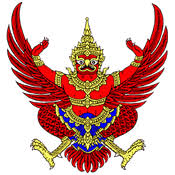Chapter 12 Lodgment and Consideration of Complaints
About TMA Group
TMA Group is a professional company focusing on local recruitment and corporate consulting in Thailand, dedicated to providing one-stop services including recruitment, financial management, tax disposal, legal consulting, personnel management, etc. for enterprises and individuals. If you need more advice on investment in Thailand, please feel free to contact us.
Chapter 12
Lodgment and Consideration of Complaints
Section 123. Whereas an Employer violates or fails to comply with an Employee’s entitlement to receive any payments prescribed under this Act, and the Employee wishes the Labour Inspector to enforce the entitlement under this Act, the Employee is entitled to lodge a complaint, in a form prescribed by the Director-General, to the Labour Inspector of the locality where the Employee works or where the Employer’s domicile is located.
With regards to any entitlement to receive any payments prescribed under this Act, if an Employee is dead, his or her statutory heir is entitled to lodge the complaint to the Labour Inspector.
Section 124. If a complaint has been lodged under Section 123, a Labour Inspector shall investigate the facts and make an order within sixty days from the date of receipt of the complaint.
If, as the result of a valid reason, the Labour Inspector is unable to make an order within the period prescribed under paragraph one, the Labour Inspector shall apply with reasons to the Director-General or a person entrusted by the Director-General for an extension of the period of time, and the Director-General or person so entrusted may grant permission as deemed appropriate, but the extension of time shall not exceed thirty days from the expiry date prescribed under paragraph one.
When it appears from an investigation by the Labour Inspector that the employee is entitled to any sum of money which the Employer is liable to pay under this Act, the Labour Inspector shall order the Employer to pay such money to the employee or to a statutory heir of the deceased employee in the form provided by the Director-General within thirty days from the date of acknowledgement or the date deemed to be acknowledged of the order.
The Employer shall pay the money prescribed under paragraph three to the Employee or to the statutory heir of the deceased Employee at the work place of the Employee. Upon request by the Employee or the statutory heir of the deceased Employee, the Labour Inspectorshall order the Employer to pay such money at the office of the Labour Inspector or at another place as agreed by the Employer and the Employee or the statutory heir of the deceased Employee.
Whereas the Employee or statutory heir of the deceased Employee fails to receive such money within fifteen days from the date of the Labour Inspector issuing the order, the Labour Inspectorshall remit such money to the Employee Welfare Fund by depositing it into the bank. The interest or fruit producing from such deposit shall belong to the Employee or the statutory heir of the deceased Employee who is entitled to receive such money.
Whereas the Labour Inspector deems that the Employee or the statutory heir of the deceased Employee is not entitled to the money under Section 123, the Labour Inspector shall make such an order and notify the Employer and Employee or the statutory heir of the deceased Employee in writing.
Section 124/1Section 124/1 Where an Employer has complied with an order of the Labour Inspector under Section 124 within a specified period, the criminal proceedings against the Employer shall be extinguished.
Section 125. Where the Labour Inspector has made an order under Section 124,if the Employer, Employee or statutory heir of the deceased Employee is not satisfied with such order, he or she shall bring the case to the Court within thirty days from the date of receipt of the order.
Whereas the Employer, Employee or statutory heir of the deceased Employee fails to bring the case to the Court within the specified period of time, such order shall be as final.
Whereas the Employer brings the case to the Court, he or she must deposit money with the Court equal to the outstanding amount that the Employer is required to pay to the Employee, prior to file the case.
Where the case is final and the Employer is liable to pay any sum of money to the employee or to the statutory heir ofthe deceased employee, the Court shall have the power to pay the money deposited with the Court by the Employer to the employee or the statutory heir of the deceased employee or the Employee Welfare Fund upon the payment under Section 134 as the case maybe.
Section 125/1.Where the Employer brings the case to the court within the specific period of time under Section 125, and has compiled with the court judgment or the order of the court, the criminal proceedings against the Employer shall be extinguished.
TMA Consulting Management has been paying attention to the updating of information through newsletters for many years, but we do not assume any responsibility for the completeness, correctness or quality of the information provided. No information contained in this article can replace the personal consultation provided by a qualified lawyer. Therefore, we do not assume any liability for damages caused by the use or non-use of any information in this article (including any kind of incomplete or incorrect information that may exist), unless it is caused intentionally or by gross negligence.











